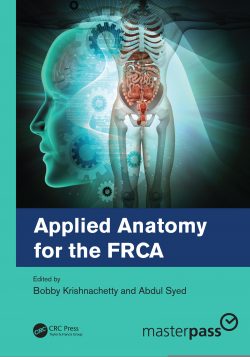Adaptivity and learning have in recent decades become a common concern of scientific disciplines. These issues have arisen in mathematics physics biology informatics economics and other fields more or less simultaneously. The aim of this publication is the interdisciplinary discourse on the phenomenon of learning and adaptivity. Different perspectives are presented and compared to find fruitful concepts for the disciplines involved. The authors select problems showing representative traits concerning the frame up the methods and the achievements rather than to present extended overviews. Adaptivity and learning have in recent decades become a common concern of scientific disciplines. These issues have arisen in mathematics physics biology informatics economics and other fields more or less simultaneously. The aim of this publication is the interdisciplinary discourse on the phenomenon of learning and adaptivity. Different perspectives are presented and compared to find fruitful concepts for the disciplines involved. The authors select problems showing representative traits concerning the frame up the methods and the achievements rather than to present extended overviews. Adaptivity and Learning — an Interdisciplinary Debate.- I Biology and Behaviour of Adaptation and Learning.- Biology of Adaptation and Learning.- The Adaptive Properties of the Phosphate Uptake System of Cyanobacteria: Information Storage About Environmental Phosphate Supply.- Cognitive Architecture of a Mini-Brain.- Cerebral Mechanisms of Learning Revealed by Functional Neuroimaging in Humans.- Creating Presence by Bridging Between the Past and the Future: the Role of Learning and Memory for the Organization of Life.- II Physics Approach to Learning — Neural Networks and Statistics.- The Physics Approach to Learning in Neural Networks.- Statistical Physics of Learning and Generalization.- The Statistical Physics of Learning: Phase Transitions and Dynamical Symmetry Breaking.- The Complexity of Learning with Supportvector Machines — A Statistical Physics Study.- III Mathematical Models of Learning.- Mathematics Approach to Learning.- Learning and the Art of Fault-Tolerant Guesswork.- Perspectives on Learning Symbolic Data with Connectionistic Systems.- Statistical Learning and Kernel Methods.- Inductive Versus Approximative Learning.- IV Learning by Experience.- Learning by Experience.- Learning by Experience from Others — Social Learning and Imitation in Animals and Robots.- Reinforcement Learning: a Brief Overview.- A Simple Model for Learning from Unspecific Reinforcement.- V Human-Like Cognition and AI Learning.- Aspects of Human-Like Cognition and AI Learning.- Making Robots Learn to See.- Using Machine Learning Techniques in Complex Multi-Agent Domains.- Learning Similarities for Informally Defined Objects.- Semiotic Cognitive Information Processing: Learning to Understand Discourse. A Systemic Model of Meaning Constitution.
Adaptivity and learning have in recent decades become a common concern of scientific disciplines. These issues have arisen in mathematics physics biology informatics economics and other fields more or less simultaneously. The aim of this publication is the interdisciplinary discourse on the phenomenon of learning and adaptivity. Different perspectives are presented and compared to find fruitful concepts for the disciplines involved. The authors select problems showing representative traits concerning the frame up the methods and the achievements rather than to present extended overviews.
To foster interdisciplinary dialogue this book presents diverse perspectives from various scientific fields including:
– The biological perspective: e.g. physiology behaviour;
– The mathematical perspective: e.g. algorithmic and stochastic learning;
– The physics perspective: e.g. learning for artificial neural networks;
– The “learning by experience” perspective: reinforcement learning social learning artificial life;
– The cognitive perspective: e.g. deductive/inductive procedures learning and language learning as a high level cognitive process;
– The application perspective: e.g. robotics control knowledge engineering.
There is no direct competition to this book which excels in the interdisciplinary case by case study of the various concepts of learningAdaptivity and learning have in recent decades become a common concern of scientific disciplines. These issues have arisen in mathematics physics biology informatics economics and other fields more or less simultaneously. The aim of this publication is the interdisciplinary discourse on the phenomenon of learning and adaptivity. Different perspectives are presented and compared to find fruitful concepts for the disciplines involved. The authors select problems showing representative traits concerning the frame up the methods and the achievements rather than to present extended overviews.





